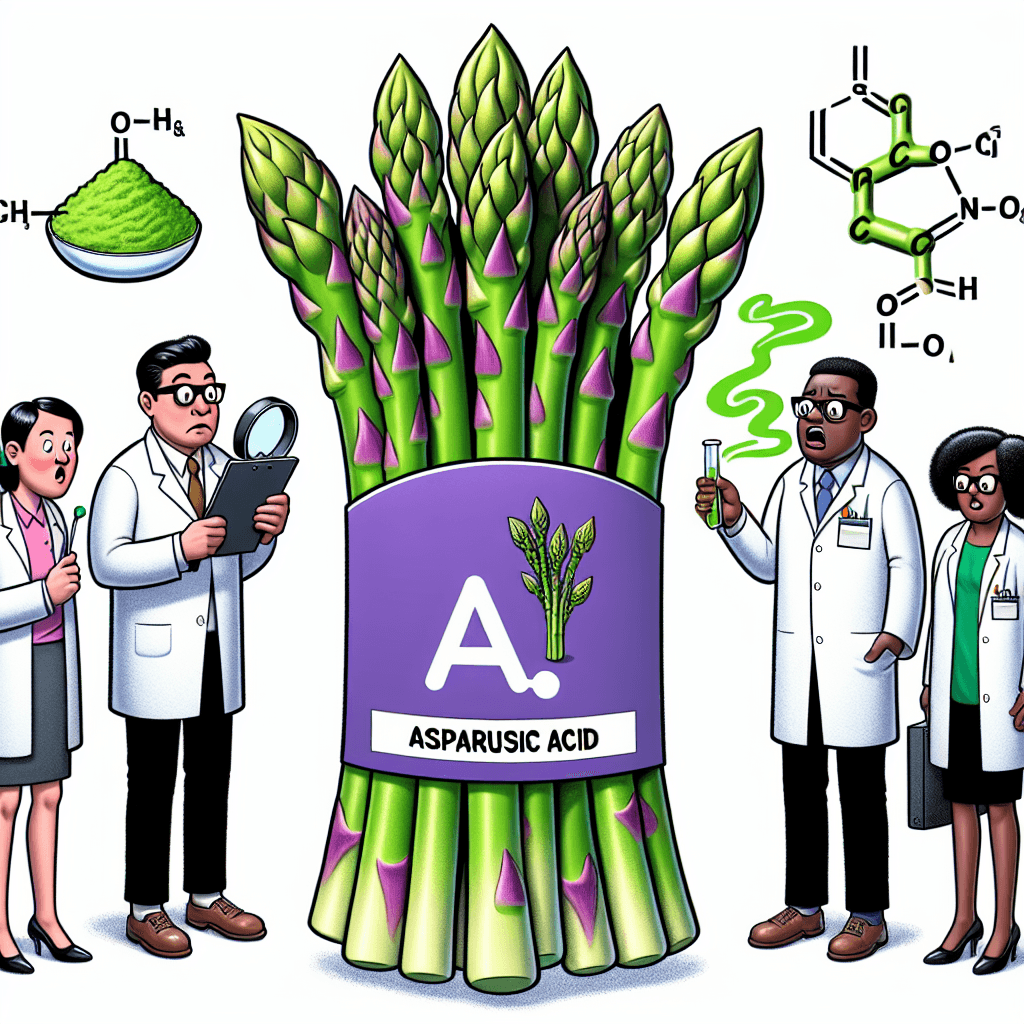The Asparagus Enigma: Why Does It Make Your Pee Smell
Ever noticed a distinct aroma after eating asparagus? This post dives into the fascinating science behind why this vegetable gives some people uniquely smelly urine.


Too Long; Didn't Read
Asparagus contains an acid that your body breaks down into smelly sulfur compounds. These compounds are excreted in your urine, causing the distinct odor.
Asparagus and That Unmistakable Aroma: Why Does Asparagus Give Some People Uniquely Smelly Pee?
Ever enjoyed a delicious meal featuring asparagus, only to notice a rather… distinct odor during your next trip to the restroom? You're not alone. This curious phenomenon has puzzled and amused people for centuries. But what's actually happening? Is it something everyone experiences? This post dives into the science behind the pungent post-asparagus aroma, exploring why this specific vegetable has such a unique effect on urine odor for some individuals. We'll unravel the chemical culprits and the genetic lottery that determines who notices it.
The Science Behind the Smell: Meet Asparagusic Acid
The key player in this olfactory drama is a unique compound found exclusively in asparagus: asparagusic acid.
- What is it? Asparagusic acid (C₄H₆O₂S₂) is a sulfur-containing organic acid. It's not present in other common vegetables, making asparagus unique in this regard.
- How does it cause the smell? When your body digests asparagus, it breaks down asparagusic acid into several smaller, volatile sulfur-containing compounds. "Volatile" means they easily evaporate into the air, which is how they reach your nose.
- The Smelly Suspects: The primary compounds responsible for the characteristic smell are thought to be methanethiol (which smells like rotten cabbage) and dimethyl sulfide (which has a somewhat sweet, pungent odor). Other sulfurous compounds like dimethyl disulfide may also contribute.
This metabolic process happens relatively quickly. Many people report noticing the smell within 15 to 30 minutes of eating asparagus, demonstrating how rapidly our digestive system processes these compounds and excretes the byproducts via the kidneys into urine.
The Great Divide: Production vs. Perception
Here's where it gets interesting: not everyone reports experiencing "asparagus pee." For a long time, it was debated whether everyone produces the smelly compounds or if only some people can smell them. Scientific consensus now leans heavily towards the latter.
The Smell Gene: Can You Detect It?
Research, including studies published in journals like the British Medical Journal, suggests that the ability to smell these specific sulfurous metabolites is linked to genetics.
- Olfactory Receptors: Our sense of smell relies on hundreds of different olfactory receptor genes, each coding for a receptor that detects specific odor molecules.
- Genetic Variation: It appears there's a common genetic variation (a single-nucleotide polymorphism or SNP) located near genes involved in smell perception. Individuals with certain versions of this gene seem unable to detect the specific volatile sulfur compounds produced after eating asparagus.
- Prevalence: Studies indicate a significant portion of the population might possess this genetic trait, making them "non-smellers." Estimates vary, but some research suggests up to 40-50% of people might not perceive the odor, though they likely still produce it.
So, if you've never noticed the smell, it's probably not because your body processes asparagus differently, but because your nose isn't genetically equipped to detect those particular airborne compounds.
Does Everyone Produce the Smell?
While the primary difference seems to be in perception, some earlier research explored whether everyone produces the smelly compounds in the first place. The idea was that some individuals might lack the specific enzymes needed to break down asparagusic acid into its volatile byproducts. However, more recent and robust studies strongly support the "perception" hypothesis – most, if not all, people likely produce the metabolites, but only those with the right genetic receptors can smell them.
Harmless but Fascinating
It's important to stress that this asparagus-induced smell is completely harmless. It's simply a natural, albeit quirky, metabolic process. It doesn't indicate any health issues or problems with digestion or kidney function. Asparagus itself remains a highly nutritious vegetable, packed with vitamins (like K, A, C, E, and folate) and antioxidants. So, don't let the potential for a temporary change in urine odor deter you from enjoying this healthy spring vegetable!
Conclusion: A Quirky Biological Mystery Solved (Mostly)
The unique smell some people notice in their urine after eating asparagus stems from the breakdown of asparagusic acid into volatile sulfur compounds. The reason not everyone reports this experience likely lies in genetic variations affecting olfactory receptors – many people simply cannot smell these specific compounds, even though their bodies produce them. This harmless biological quirk highlights the fascinating interplay between diet, metabolism, and our individual genetic makeup. So, the next time you encounter that distinct aroma, you'll know it's just a sign your body has processed a unique, sulfur-rich acid, and whether you smell it or not depends on your personal genetic lottery.


